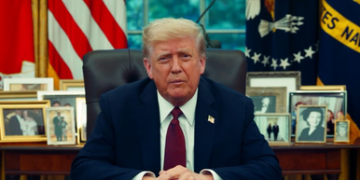New Delhi, Jan 12: India needs to shift focus from its border with Pakistan to that with China, Army Chief Gen Bipin Rawat said Friday, cautioning that the country cannot allow its neighbours to drift towards China, virtually asking the government to effectively implement its ‘neighbourhood first’ policy.
Admitting that Chinese troops have been ramping up pressure along the Line of Actual Control (LAC), he asserted that China may be a powerful country but India too is not a weak nation. In a media address on the eve of the Army Day, Rawat said countries like Nepal, Bhutan, Myanmar, Bangladesh, Sri Lanka and Afghanistan have to be kept on board as part of a broader strategy to deal with China, and India must make “wholehearted” efforts to continue extending support to them.
“We cannot allow the neighbourhood to be drifted away from us –whether it is Nepal, Bhutan, Myanmar, Bangladesh, Sri Lanka or Afghanistan. These nations have to be kept on board, and I think we have to put in our wholehearted effort to ensure we continue to support them,” he said.
The Army chief’s comments assume significance given that in recent past, China has been deepening ties with some South Asian nations and providing them with huge financial aid, which, some experts feel, may draw India’s neighbours including the Maldives, Sri Lanka and Nepal towards Beijing.
These countries have been traditionally close to New Delhi. Underlining the need for shifting attention from the western border with Pakistan to the northern frontier with China, Rawat said, “For too long, we have kept our focus on the western front. I think time has come for us to focus on the northern border. Therefore, our infrastructure development on the northern border has to be speeded up.”
Referring to India shoring up ties with other countries, he said, “We are seeking support of other nations, group of nations in the region, to see that we are not isolated completely in a situation in Asia against an assertive China. That is the next step that is being taken and, therefore, you will find that a quadrilateral is formed.”
In November last year, India, Japan, Australia and the US had set the ball rolling for forming a quadrilateral coalition in the Indo-Pacific region to pursue their common interests, a move seen as a measure to counter growing Chinese influence. He said there are other countries that are coming on board to support India in whatever way they can.
“At the military level, we know that if there is a threat from China, we have to be prepared for it,” he said, adding India’s military engagement with almost all nations of the region is of a high order. The Army is concentrating more on the neighbourhood than beyond as this will enable India to balance the Chinese assertiveness, he said.
“That is the approach we are taking. We know China is a powerful country but let us also not forget that we are not a weak nation. Let’s not get so worried. We are dealing with the situation. We are confident we will be able to handle the situation,” he said.
Rawat said China has been keeping its troops in north Doklam. He said India is dealing with China at different levels including through diplomatic engagement. He also admitted that China was exerting pressure along several border areas, but India made sure the situation did not escalate beyond a point.
“Yes, it (China) is exerting pressure. We are prepared for it, but as I said we are dealing with it at different levels. Our intention always is that whenever he exerts pressure, we should try not escalate it beyond a limit. “Yes, we will not allow our territory to be invaded or intruded upon. Whenever an intrusion takes place to our territory, we will defend our territory because that is a charter given to us,” he said.
PTI






































